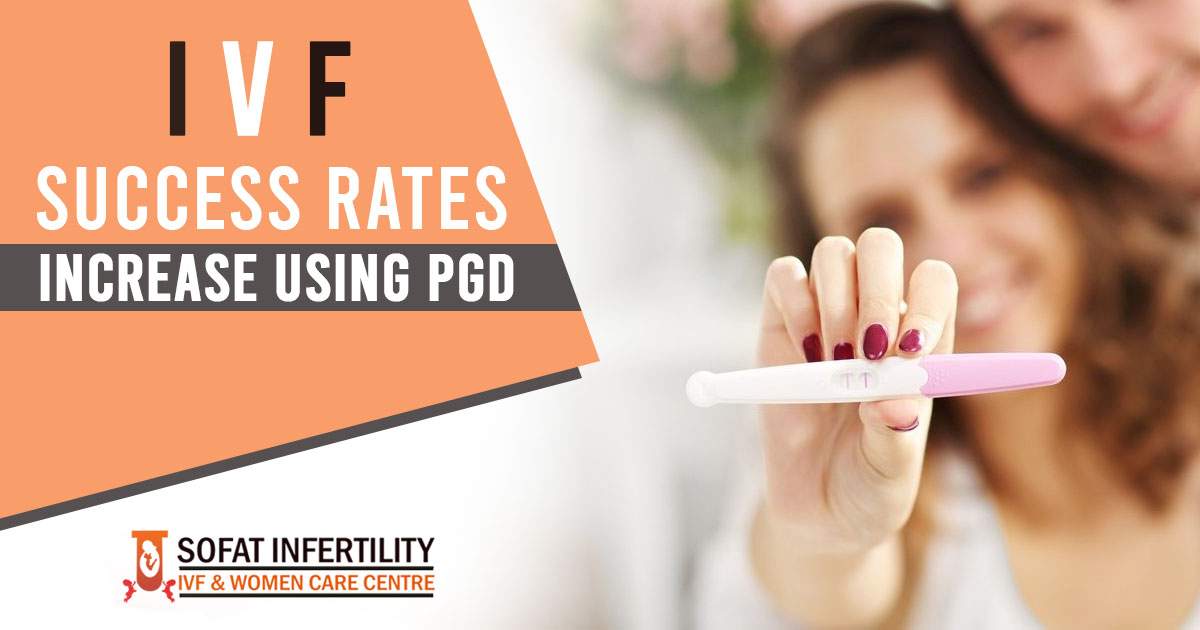PGD (Preimplantation genetic diagnosis): is used in the best IVF centre in Punjab to improve the success rate drastically. This has improved the fertility rate for many couples who are not able to conceive naturally. Half of the time failure occurs when the embryo quality is not up to the mark. In many cases, couples are not aware of what they need to do. Generally, the embryos are considered good when the cell division number is right during the growth phase and they have a uniform size
PGD is the advanced tool for IVF treatment
Recent, advancement has shown that embryos with the highest rating according to their excellent or normal appearance are abnormal and they will result in pregnancy. This is possible with the addition of PGD (Preimplantation Genetic Diagnosis) is a tool for scientists in the IVF laboratory. Not only the embryo appearance but it also helps to know about the genetic code of the embryo. This is the reason, it makes it possible to have a healthy pregnancy. With scientific improvement, these changes are possible and such simple observations make everything more effective. The good news is that the PGD is for the couples who have undergone an IVF failure in the past.
Single Cycle IVF Success Following PGD
IVF success rate for a single cycle is high when there are chromosomally 2 or 3 embryos which need to be transferred. The chances of healthy pregnancy increase when the embryos are genetically normal along with high implantation rates. To make sure embryos are chromosomally normal, the PGD analysis is done before the selection is done for embryo transfer.
What makes the embryo genetically normal?
To have a genetically normal embryo, there are around 2 chromosomes of each of 22 chromosome types in addition to XX female or XY male chromosomes. Anything less or more will result in defects in the embryo. Due to this, the embryo will not be able to develop and implant it in the right way. This is the reason, it results in increased chances of miscarriage.
Which couples can get success from PGD?
Prior unexplained IVF failure
- Recurrent miscarriages
- Premature ovarian failure or premature menopause
- History of ovarian hyperstimulation syndrome)
- Maternal age over 38
- The conception of a chromosomally abnormal child or fetus
- Polycystic ovary syndrome (PCOS
- A heritable medical condition in either the patient or in a prior child-like hemophilia
- Two or more children of the same gender (gender selection for family balancing)
- Multiple births with a desire to transfer just one embryo
Which disease can be detected with PGD?
- Adrenoleukodystrophy
- Amyotrophic Lateral Sclerosis
- Becker Muscular Dystrophy
- Beta Thalassemia
- BREAST CANCER
- Central Core Disease
- Charcot-Marie-Tooth Disease
- Chondrodysplasia Punctata
- Congenital Aganglionic Megacolon
- Cystic Fibrosis
- Duchenne Muscular Dystrophy
- Factor VIII Deficiency
- Fragile X Syndrome
- Friedrich’s Ataxia
- Gardener Syndrome
- Glycogen Storage Disease
- Happy Syndrome
- Hemophilia
- Huntington’s Disease
- Retinitis Pigmentosa
- Prostate Cancer
- Sickle Cell Anemia
- Tay-Sachs Disease
- Von Willebrand Disease







